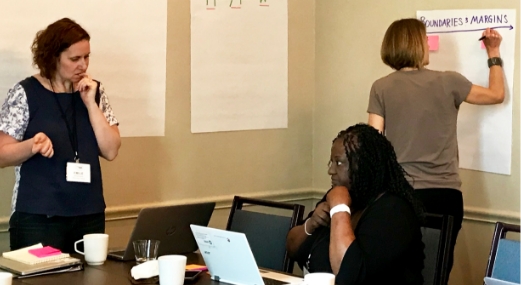Change Behaviors at Scale
Coherence Framework Elements
IN THE IDEAL STATE LEADERS WILL:
Tap Networks
Leaders build a culture and environment of learning and growth within their systems. They understand the value of peer-to-peer learning through direct and indirect networks and utilize the expertise of team members across and within agencies to lead on behavior changes. They strategically identify experts and change agents who may not hold positional authority but do hold strong social relationships to lead knowledge sharing and implementation.
Appeal to Emotion
Leaders understand that behavior is interconnected with mindsets and feelings. They acknowledge the limits of carrot and stick incentives to spur action and understand that motivating large-scale change requires connecting with individual people’s emotions and sense of purpose. They intentionally connect these mindsets and beliefs to concrete behaviors. They use storytelling to build investment in change efforts.
Define Key Behaviors
Leaders set clear and specific expectations about critical moves that guide each team member’s daily efforts. They know the value of supporting individual and team capacity-building and they invest in developing a focused set of knowledge, skills and mindsets of their leaders. They know that setting expectations and growing a culture of reciprocal responsibility focused on the right things is necessary for changes in structures and behaviors to occur and be sustained.

